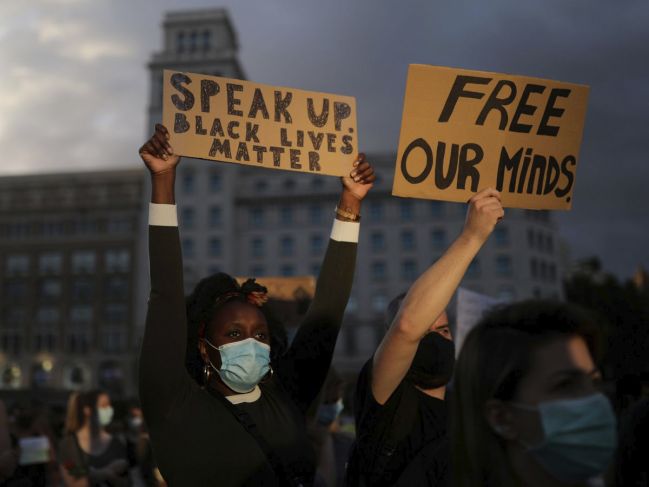I have spent most of my diplomatic career in different countries with exposure to varied cultures and religions.
The one common denominator I have found is that every society I have encountered has its own form of racism which, I believe is based on two basic elements: power and fear.
Consider the history of Christian European colonists – both Catholic and Protestant – who at some point deviated from the message of Christ to love one another and instead became obsessed with power, expansion, and a cult of superiority that inspired them to use the sword followed by the cross to colonize people in Africa and the Americas.
Rather than interact with the peoples and share in their vision of the world, they simply enforced their own vision upon the natives and subjugated them.
As the centuries passed, the European colonists found themselves at the top of the political, economic, and social scale in the Americas. The indigenous were at the bottom with their rights to their own cultures and languages debased, and their sense of inferiority heightened by their victimization.
The same thing happened to Africans brought to the Americas as slaves. Their languages and identities eradicated, their religion replaced by a Christianity that taught them submission to the God of the colonist, and a social structure that relegated them to the bottom of the ladder.
American and Canadian authorities spent years trying to assimilate their indigenous populations thus depriving them of their languages and cultures. As well, they spent much energy in marginalizing and discriminating against their black populations.
Today, indigenous peoples have found a certain refuge in modern liberalism that has led to their acceptance by the mainstream. They have also found power in unity and have developed international networks of supporters who share their demands for their rights at the United Nations, the Organization of American States, and in the media.
And in the United States successive federal governments have had to legislate in favor of human rights for African Americans, while many state legislatures continue to legislate against the rights of blacks to vote freely and fairly.
Populist leaders in the US and elsewhere are using this fear of the other to fuel their political careers as they legitimize the hatred of the white underclass and give them a target to blame for their own deficiencies. One sees this in the rise of Islamophobia in Europe, where populists like Hungary’s Prime Minister Orban and French leader Marine LePen rail against migrants and minorities, fearing that their national cultural values are threatened by the influx of migrants, especially Muslims.
Social media has provided racist leaders everywhere with the tools that they need to reach masses of frustrated voters and feed them the ideas that justify their insecurities and, in turn, get these leaders elected to political office.
The rise of radical nationalism in many countries is leading to policies that diminish the rights of religious or racial minorities. In India, Prime Minister Modi is leading a Hinduist government that clearly seeks to marginalize India’s large Muslim minority. In many African countries, radical tribalism has resulted and continues to produce violence and mass killings within national borders created by the former colonial powers that have n cohesive value for the tribes that inhabit these lands.
This rise is radical nationalism can be attributed at least in part to the rise of globalism during the last decade and the perception of loss of control over their national laws and values by many people. Racism and racist policies give many the feeling of control, and until this feeling is replaced by the acceptance of a shared existence in a common space, racism will continue to run rampant.
Racism is fundamentally a product of human nature. Despite our technological advances, most of us still find comfort in the “tribe” – our nationality, our class, our culture – and continue at some level to see the world in terms of “us and them”. Whether or not this vision can change remains to be seen. But the rise of nationalism in response to the frustrations brought on by globalization has allowed many to regain a sense of control over their identity.
And this will continue as long as human nature remains unchanged.
Sigue leyendo: Can Angela Merkel Do It?
Edición: Laura Espejo
El mandatario llamó a revitalizar la industria nacional, con énfasis al sector alimentario
Sputnik/Ap
La situación en Irán compromete gravemente el tráfico marítimo en el estrecho de Ormuz
Afp
La incorporación de los nuevos tres elementos es resultado de la cooperación con la embajada de EU
La Jornada Maya
Las paredes se pueden limpiar, pero una vida perdida es irreparable, aseguró Díaz Mena
La Jornada Maya
